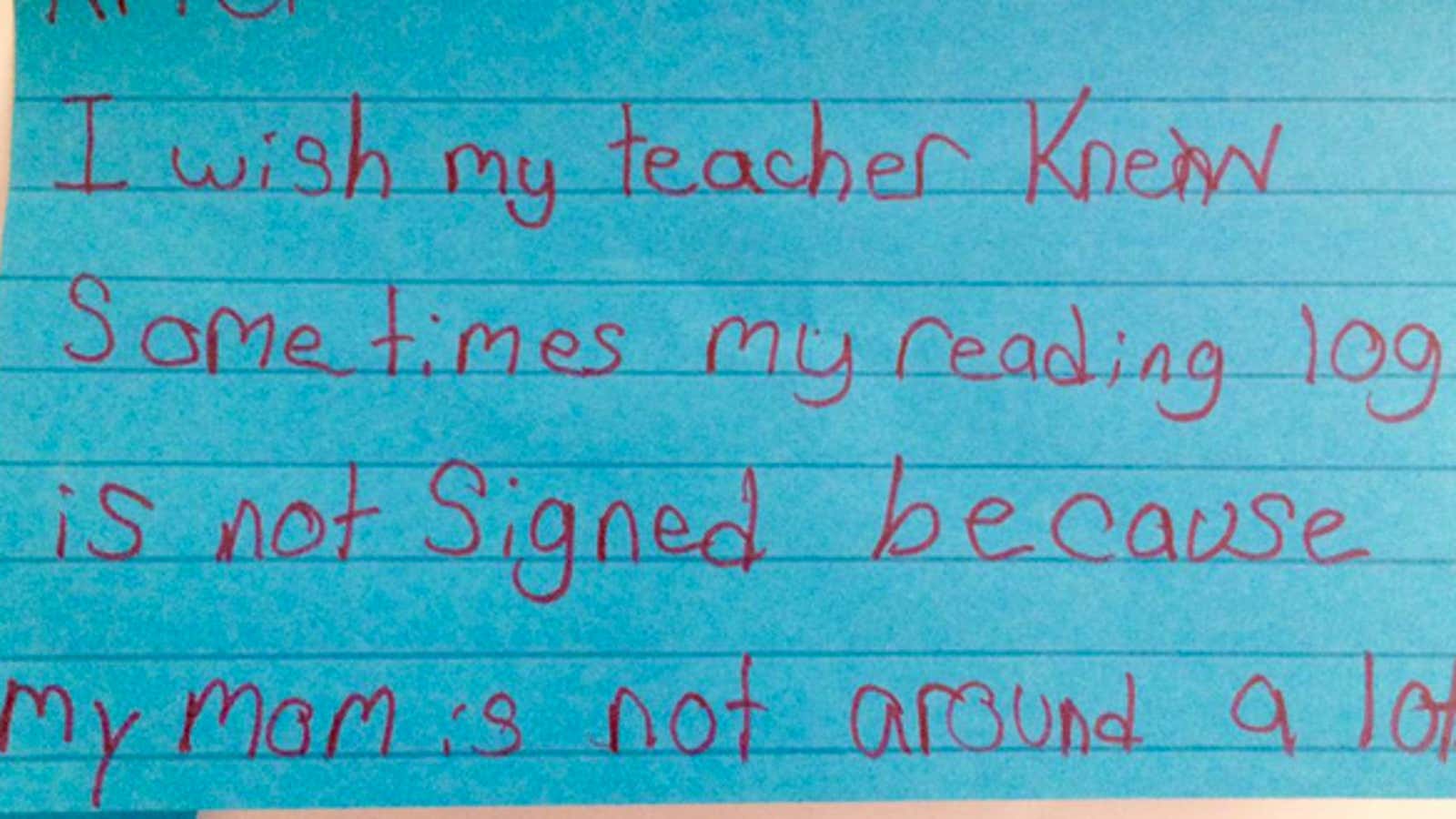For the past three years, third grade Colorado teacher Kyle Schwartz has asked her students to complete a simple sentence. “I wish my teacher knew…”
After joining Twitter recently, Schwartz posted some of the answers, which gained national attention when ABC reported the story.
Schwartz teaches in a school district with a high percentage of low-income students, a population that faces higher stress and other obstacles outside of school, all of which can affect classroom performance. Schwartz says she knows the facts and statistics about the difficulties that her students face, but these messages help her to understand at least some of them individually. “When I read them, I don’t just feel this overwhelming, debilitating, sadness,” she tells Quartz. “I feel kind of a call to action.”
Schwartz allows her students to decide whether they want the note to be anonymous, just for her eyes, or to share with the whole class. Most of the students are willing to share, and will help each other—the day after one student shared that she had no friends to play with, for example, Schwartz saw a group huddled around her at recess, making an effort.
Some problems are easy to fix—she put a filled pencil box into the backpack of the student who didn’t have pencils at home, and opened a box of dinosaur books for the student who wanted to learn more about the Tyrannosaurus Rex.
Other notes inform the way she works with students: She now understands that one student is often grumpy in the morning because he shares a bed with a loud brother. And a number of students say they miss their fathers, or don’t have fathers at home, so when talking about parents she says “family,” instead of “mom and dad.”
“You can be more inclusive in your classroom when you know the realities of their life,” Schwartz tells Quartz.
After Schwartz posted her class’s notes with the hashtag #Iwishmyteacherknew on Twitter, other teachers followed suit.
Stress, it’s now understood, can have negative consequences for student learning. Fifth-grade teacher Cassandra Norsworthy used the activity to teach her class techniques to deal with stress, like finding someone to talk to or meditation, Norsworthy told Quartz in an email: “We compared stress to anxiety, especially test-related, and promised to help each other if we were feeling stressed. We came up with a hand signal, wavy hand, that we could do if we felt like we needed some support in dealing with stress.”
The exercise could have implications beyond the classroom—Schwartz says she encouraged one curious parent to have her child finish the sentence “I wish my mom knew,” and a case worker reached out to say she will ask foster children entering new homes to write an “I wish my foster parent knew” note.
